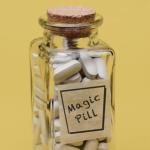The myth that "natural is better" is widespread and pernicious. Though it can manifest in relatively harmless ways (e.g., consuming overpriced organic food), the relentless pursuit of all-things natural can be dangerous or even deadly.
homeopathy
A lot of alternative medicine sounds reasonable enough.
Homeopathy is the system of using extremely dilute solutions of the disease-causing entity itself to treat the disease. This is not the same as vaccination, although it may sound similar.
A family in rural Pennsylvania bore the sad fruits of believing in products that could not possibly help when i
The Australian National Health and Medical Research Council (NHMRC) has released a position
This week in health news: Oprah Network pulls the plug on the Dr. Oz radio show, the European Commission says sick cattle to be treated with homeopathy, and the FDA takes a closer look at the efficacy of antimicrobial soaps and hand sanitizers





